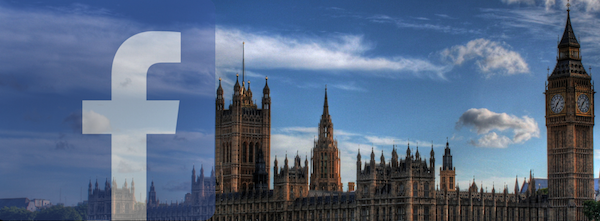 Facebook is under fire from British lawmakers over claims that it intentionally breached UK data privacy and anti-competition laws.
Facebook is under fire from British lawmakers over claims that it intentionally breached UK data privacy and anti-competition laws.
In a damning new report British lawmakers claim Facebook “intentionally and knowingly violated both data privacy and anti-competition laws”.
The British parliament’s Digital, Culture, Media and Sport Committee’s final report on an 18 month investigation into the spreading of “fake news” and disinformation said companies such as Facebook “should not be allowed to behave like ‘digital gangsters’ in the online world, considering themselves to be ahead of and beyond the law.”
Much of the inquiry focused on Facebook’s data collection practices and the Cambridge Analytica scandal, which involved harvesting data of millions of Facebook profiles without users’ consent – some of this data was allegedly used to psychologically profile US voters.
“Facebook’s handling of personal data, and its use for political campaigns, are prime and legitimate areas for inspection by regulators, and it should not be able to evade all editorial responsibility for the content shared by its users across its platforms,” the report said.
“Democracy is at risk from the malicious and relentless targeting of citizens with disinformation and personalised ‘dark adverts’ from unidentifiable sources, delivered through the major social media platforms we use every day,” the report added.
The Committee said Facebook used its Onavo virtual private network app to “collect app usage data from its customers to assess not only how many people had downloaded apps, but how often they used them”.
“This knowledge helped them to decide which companies were performing well and therefore gave them invaluable data on possible competitors. They could then acquire those companies, or shut down those they judged to be a threat,” the report said.
The Committee urges the government to introduce a compulsory code of ethics for tech companies. They propose that the code of ethics be overseen by an independent regulator with powers to take legal action if companies breach the code.
Committee chairman Damian Collins said: “The rights of the citizen need to be established in statute, by requiring the tech companies to adhere to a code of conduct written into law by Parliament, and overseen by an independent regulator.”
According to the BBC, Facebook said in response:
“We share the committee’s concerns about false news and election integrity and are pleased to have made a significant contribution to their investigation over the past 18 months, answering more than 700 questions and with four of our most senior executives giving evidence.
“We are open to meaningful regulation and support the committee’s recommendation for electoral law reform. But we’re not waiting. We have already made substantial changes so that every political ad on Facebook has to be authorised, state who is paying for it and then is stored in a searchable archive for seven years. No other channel for political advertising is as transparent and offers the tools that we do.”

